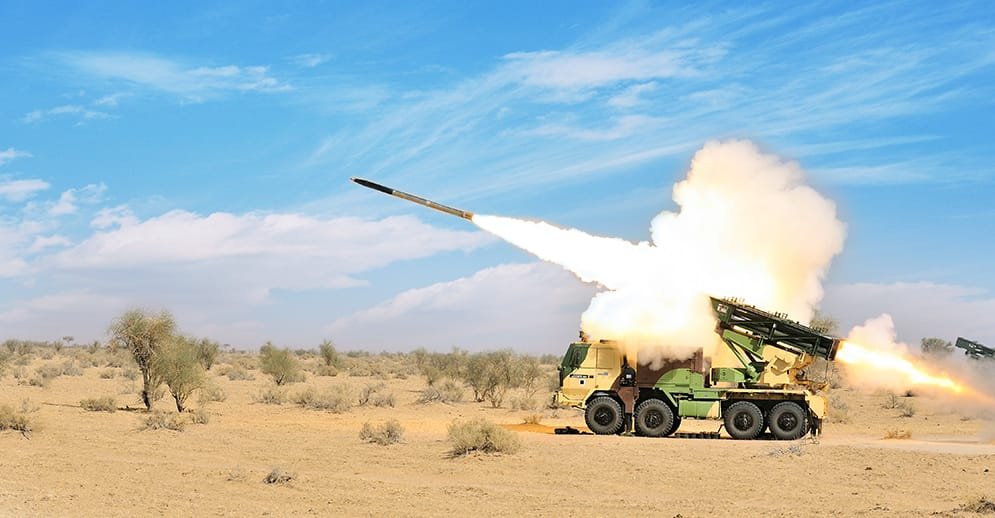By Vineet Aggarwal, President of The Queensland Associated Chambers of Commerce & Industry of India.
When the young and debonair Indian Prime Minister, Rajiv Gandhi visited Australia in 1986, little did we know that it will take 28 years for another head of government from India to go Down Under. To just give an idea of the time that has passed, a new Indian generation has been born, grown up and now ready for the university during the interregnum between Gandhi’s tour of Australia and the sojourn this year of incumbent Prime Minister Narendra Modi.
To be sure, relations between countries aren’t just made on the basis of state level visits and bilateral summits. Away from the limelight, solid groundwork has been done in recent years for accelerating trade between India and Australia. Regardless of high level meetings, the relations between India and Australia have been growing from strength to strength.
One proof of this was evident when during the New Delhi visit of Australia’s Prime Minister, Tony Abbott, an agreement was signed to supply uranium to India for utilization in the nuclear power plants. This has opened up immense opportunities for India to benefit from Australia’s clean and renewable energy technology.
Talks towards the Civil Nuclear Co-operation Agreement began about two years ago after Australia lifted a long-standing ban on selling uranium to energy hungry India. India will become the first country to buy Australian uranium without being a signatory to the nuclear non-proliferation treaty, which shows the high level of trust in the bilateral relationship.
India’s nuclear journey still has a long way to go. India operates only 20 small nuclear reactors at six places with a combined capacity of 4,780 MW, that is equivalent to only two percent of its current power generation capacity, according to government data. The government aims to increase its nuclear capacity to 63,000 MW by 2032 by adding nearly 30 reactors at an estimated cost of US$85 billion.
However, the Indo-Australia relationship isn’t about strategic issues such as nuclear power alone. Australia entrepreneurs are eyeing India for setting up a wide range of businesses.
Food processing is a growing industry in India and there are a number of opportunities in this industry for the Australian companies. We are always looking for the investors to take things up to the next level where the business interests are aligned. We are confident that soon we would create food chains that will give a tough competition to American businesses like Pizza Hut, Dominos, Starbucks among others.
With the Prime Minister Modi’s campaign on “Make in India” picking up momentum, we are working with a nutritional and healthcare product maker to set up their manufacturing unit in India and develop it as a hub to export to their clients in US and European markets.
Education is another sector where we have seen many opportunities in the two countries. Australian education standards have consistently been very high and they compete effectively with the best institutions in the world. Over a number of years, the processes and methods have been developed by the training system in Australia that ensure that candidate comes out not only as a qualified individual but also job-ready. Australia has attained high levels of skills in areas such as building, construction, health and safety. There is a ready demand for such know-how in India. This will ensure that workers and managers become prepared technically and professionally to develop a modern India with a vision of villages, towns and cities that have basic civic amenities and make progress in every sphere as a part of the larger national whole.
Setting up of the Delhi-Mumbai Industrial Corridor, or DMIC, a mega US$90 billion infrastructure project is in full swing. Establishing 100 mega or smart cities, is another massive project initiated by the government of India. With the initiatives on DMIC and ‘smart cities’ projects, realization has dawned that there is an imminent shortage of skilled workers for construction and infrastructure.
Government estimates show a requirement of 500 million skilled workers in the infrastructure sector. According to a recent study, there is more than 50% shortfall in this category. Construction requires civil, mechanical and electrical engineers while most youth are keen on software, creating a huge shortage of skilled manpower in critical sectors.
Australian Vocational Education and Training, or VET institutes can help fill this gap in India’s infrastructure sector and are pursuing it as an opportunity. There was never a better time for them to enter India.
The VET sector is crucial to the Australian economy; both for the development of the national workforce and as a major export industry. Training packages are developed by Sector Skills Councils, or SSCs to meet the training needs of an industry, or a group of industries.
Training packages do not suggest how a learner should be trained, rather, they specify the skills and knowledge required to perform effectively in the workplace. This approach can work well in satiating the infrastructure hunger of India.
Australian businesses have been able to create a knowledge base of best practices in various areas – ranging from food processing to wool making, from gold, coal and iron-ore mining to silo manufacturing for grains storage – after sustained measures of development and then retaining the know-how for further enhancement of skills. Australian companies are focused on manufacturing quality products and do not rely on cheap cost reduction measures or in cutting corners.
India, with its massive consumer base and rising incomes, is a natural market for Australian high-end products. India’s fast expanding middle class is willing to spend their money on the premium and quality products, which Australian businesses have demonstrated through their extraordinary ability to manufacture.
Our company also plans to help export Australian renewable energy technology to India. The technology is already running successfully in UK, Australia, Germany and Singapore. We are also assisting an Australian information technology company specializing in paper digitization and automation, who is looking for distribution partners. Other potential sectors for bilateral trade and business growth are wine and agriculture exports to India, sports technology and further accelerating Indian investment in Australian mines.
Business and investment is not a one way traffic. There are many Indian companies who are also keen to invest in Australian businesses and help them penetrate at the pan-India level. Similarly, there is no dearth of investors looking for opportunities to manufacture profitable Australian brands in India.
During his special parliament session address in Canberra, PM Modi mentioned that, around 25% of India’s population has either no or very limited access to electricity. It is true that nuclear power can help meet demand for electricity over the next several decades with expansion of existing projects and setting up new ones. However, until that happens, coal will continue to be the main feedstock for India’s power generation. Two-thirds of India’s power stations are fired by coal, and recent data showed that half of them are down to a week’s stock. Australia can help India come out of this quagmire.
India’s domestic coal output was badly affected in recent years due to legal controversies over the procedure adopted in allocation of licenses. In what can be a pathbreaking deal in Indo-Australia business relations, recently, the Adani group’s proposed plan to build a $7 billion coal mine was cleared by Australia’s Queensland state, which also announced a major investment in rail infrastructure to support the Indian conglomerate’s mega project.
Queensland State is expected to pick up a “substantial stake” to fund the port and rail road initiatives to evacuate coal from the Galilee basin as part of the project. Australia, in view of its small population, depends on exporting resources to fuel its economy and India with its rising population needs these resources. It’s a win-win relationship.
The investment comes at a time when global mining giants Glencore and BHP have abandoned greenfield coal projects due to a sharp fall in coal prices but this hasn’t deterred the Adanis. The Adani Group is an integrated energy conglomerate, with ports, ships, rail road and power plants and guaranteed supply of raw materials such as coal is critical for them.
Adani acquired the coal asset for A$3 billion in cash and royalties from Linc Energy Ltd., making it the largest purchase by an Indian company in Australia. The project will employ 5,000 people during construction and production. The company is targeting its first coal output anytime now and production between 50 million and 60 million tons by 2022. At this annual run rate, the mine can keep producing coal for more than 100 years.
Whether it is nuclear power, or coal-fired electricity generation, Australia will play an important role for years to come in India’s quest for giving each one of its citizens, the access to this vital resource.
Besides power, India urgently needs to unleash an infrastructure revolution. Construction and storage infrastructure are key sectors where the two countries can work in tandem.
Successive years of normal monsoon rains have resulted in a major expansion in India’s food grain stocks. These grains stocks are in urgent need of proper maintenance and management to prevent them from rotting. Despite an initiative taken 15 years ago to build state-of-the art grain silos in India, things haven’t moved even an inch yet on that front. Rice and wheat is still being stored in brick-and-mortar godowns, walls of many among which get damp during the rainy season. Even these godowns are now overflowing and due to lack of space, grains are stored on wooden plinths, which are then covered with black plastic sheets. It is here that Australia’s role comes into play. Australia, one of the world’s largest exporters of wheat can share its expertise in building the much needed grain silos in India. Australian cooperatives such as the CBH Group have a proven track record in procuring, storing, distributing and exporting grains and India with its huge stockpile can benefit from their experience.
Recent G20 summit in Brisbane (Australia’s new world city) and PM Modi’s visit to Australia has certainly opened new doors for India Australia relationship besides Cricket and Commonwealth. It’s now up to the business players on both sides to take some international flights, imbibe into the foreign cultures and get most runs on the board during these powerplay overs.
(Aggarwal, an Australian-Indian, founded Cerule Consulting to assist Australian companies do business in India.)









